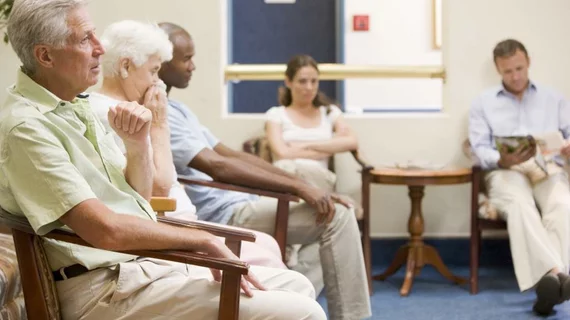Patients waiting 5-plus hours in the ED before hospital admission face increased mortality risk
Patients waiting more than five hours in the emergency department before being admitted into the hospital face an increased risk of all-cause death within the following 30 days, new research shows.
In fact, there was 1 extra death for every 82 individuals whose inpatient status was delayed 6-8 hours after arriving in the ED, experts reported Tuesday in BMJ. The study included more than 5 million patients treated across England between 2016 and 2018.
Emergency department wait times have declined in the U.S. over the past decade, but millions still go two hours without seeing a provider and COVID-19 has only worsened those statistics. England enacted a four-hour target to discharge, admit or transfer patients to minimize overcrowding, with other countries like Canada and Australia doing the same.
And while about 38% of patients, on average, waited more than four hours before being admitted, the established target appears to be helping patients and may also benefit American EDs.
“This study confirms that healthcare policymakers should continue to mandate timely admission from the [emergency department] in order to protect patients from hospital-associated harm,” Simon Jones, with the Department of Population health at New York University School of Medicine, and co-authors wrote.
The study included more than 26 million emergency department visits between April 2016 and March 2018, with 5,249,891 admitted to the hospital. More than 433,000 people died within 30 days of admission during the study period.
About 38% of patients, on average, waited longer than the four-hour benchmark. The team noted a statistically significant increase in the death rate for waits exceeding five hours.
In fact, they reported a 10% increase in the standardized mortality rate within 30 days for inpatients sitting in the ED between 8-12 hours compared to those who left within six.
The group noted that 30-day mortality doesn’t account for factors such as increases in patient morbidity or worse patient experiences and the observational nature of their research can’t establish cause and effect. But keeping patients waiting, they added, is never beneficial.
“Delays to inpatient admission from any cause are of no value to the patient and may also impede timely care for new ED arrivals,” the authors concluded.
You can read the full study here.

